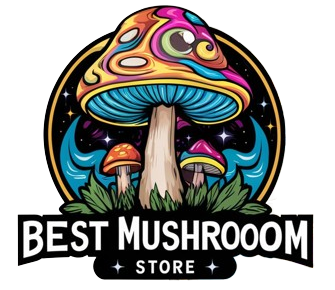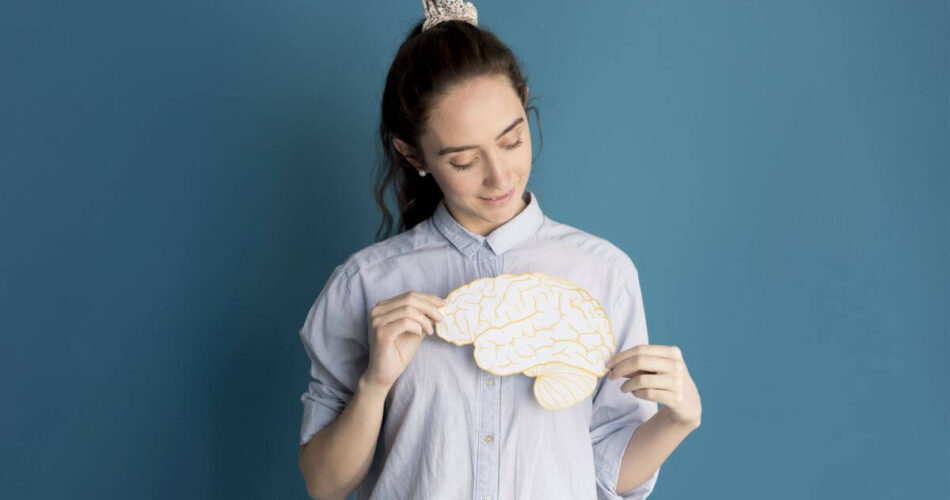Most people know that psychedelics can have profound effects on the mind, but what many don’t realize is that these substances can actually change the way our brains function. What do shrooms do to your brain?
What Are Magic Mushrooms?
In order to answer the question “what do shrooms do to your brain”, it is important to understand the compounds found in magic mushrooms first. Hallucinogen shrooms containing chemicals that can alter one’s perception, mood, and intellect are known as psilocybin mushrooms. These fungi have been used in religious and spiritual practices for hundreds of years. Magic mushrooms may induce modifications in thinking, feeling, and sense perceptions when taken. While there is some debate about the risks and benefits of using magic mushrooms, they are still considered illegal in the United Stated under federal law.
Types of Hallucinogenic Mushrooms
There are many types of magic mushrooms that can be found in nature. The most common type is the Psilocybe cubensis, which is also known as the “golden teacher” mushroom. This type of mushroom contains the psychoactive compound psilocybin, which is responsible for the hallucinations and other effects associated with shrooms. Copelandia, Gymnopilus, Inocybe, Panaeolus, Pholiotina, Pluteus, and Psilocybe are examples of biological genera containing psilocybin mushrooms. There are about 200 species of magic mushrooms. Their effects depend on the user’s age, weight, health, what kind of mushroom it is, how much was consumed, and whether it was eaten fresh or dried.
Common Side Effects Of Mushrooms
Psilocybin is absorbed rapidly in the stomach and broken down to psilocin, which then binds to serotonin receptors in the brain. The altering impacts of psilocybin generally last between two and six hours, although those under the influence of psilocybin may believe the effects to be much longer, since the drug can distort time perception. Psilocybin’s effects vary depending on the individual and setting (environment, mindset, etc.), as well as dose.
There are some potential side effects that users should be aware of. The most common side effect is nausea, which can be caused by the body’s natural reaction to the psychoactive compounds in magic mushrooms. In some cases, vomiting may also occur. Other potential side effects include dizziness, headache, and fatigue. It is also important to note that magic mushrooms can cause changes in perception, including visual and auditory hallucinations, similarly to LSD. But what do shrooms do to your brain?
What Happens in the Brain After Psilocybin Use?
When psilocybin is ingested, it is broken down into psilocin in the stomach. Psilocin is then absorbed into the blood stream and crosses the blood-brain barrier. Once in the brain, psilocin binds to serotonin receptors, which are responsible for mood, perception, and consciousness. This leads to an increase in serotonin levels in the brain. The combination of these effects results in altered perception, mood, and consciousness.
Psilocybin use can cause short-term changes in brain activity and neurotransmitter levels. These changes may be responsible for the psychedelic experiences. Psilocybin use has also been associated with long-term changes in brain activity, although the exact nature of these changes is not yet fully understood.
Some research suggests that psilocybin use may be associated with an increased risk of psychiatric disorders, such as psychosis and anxiety. However, it is not clear if psilocybin use is a direct cause of these disorders or if there is another underlying factor that predisposes people to both psilocybin use and mental illness. More research is needed to understand the potential risks and benefits of psilocybin use.
What Do Shrooms Do to Your Brain?
Studies have shown that psilocybin, the main active ingredient in hallucinogenic mushrooms, can alter brain activity and improve mood, cognitive function and creativity. So, what do shrooms do to your brain? Psilocybin affects the serotonin 5-HT2A receptor, which is found in high concentrations in the prefrontal cortex – the region of the brain responsible for higher-level thinking, decision-making, and emotions. When psilocybin binds to this receptor, it causes changes in neural activity and can lead to altered states of consciousness. The result is a feeling of euphoria, increased visual and auditory hallucinations, changes in time perception, and an overall change in consciousness.
Are Magic Mushrooms Dangerous?
Mushrooms have been used as a medicinal remedy for millennia, with some of the first recorded examples dating back to Ancient Egypt. Since then, the interest in their therapeutic effect has increased dramatically, and they have been used to treat depression and mental health conditions. So, what do shrooms do to your brain, and can they be beneficial? There is some debate over whether shrooms are dangerous to your brain. Some people say that they can cause long-term damage, while others claim that they have therapeutic benefits. More research is needed to determine the safety of shrooms and their effects on the brain. They are, however, still illegal in most countries and states.
Similar Posts:
- Pluteus Nigroviridis: Is P. Nigroviridis Potent? All You Should Know About Shrooms
- Magic Mushrooms Benefits – Studies on Microdosing Psilocybin Mushrooms
- Zoloft and Shrooms. Combining Antidepressants With Magic Mushrooms
- Effects of Shrooms: How Hallucinogenic Psilocybin Works
- Shrooms vs. Acid: What Are the Similarities and Differences Between Magic Mushrooms and LSD (Acid)?
- Side Effects of Shrooms: Are Magic Mushrooms & Psilocybin Safe?
- SSRI and Shrooms | Psilocybin Mushrooms With Antidepressants





